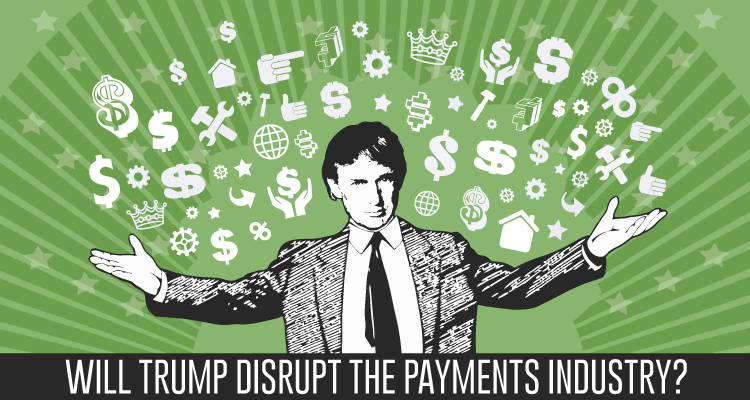It’s been a rocky start for the Trump Administration. Regardless of what side of the political spectrum you stand, there’s been controversy and divisiveness surrounding everything from the administration’s cabinet picks, the travel ban, and the repeal of Obamacare.
However, we’re curious about how the new administration is going to impact payments systems — which could have grave implications for big banks to Fintech startups to customers like you and me.
Table of Contents
ToggleRolling Back on Regulations
The Trump Administration has made no secret that they’re going to relax on regulations that have been placed on banks following the 2008 economic crisis. The administration is focusing on dismantling the Dodd-Frank Act, as well as the Consumer Financial Protection Bureau.
The administration has also loaded its cabinet with high-profile financial advisors, such as Goldman Sachs alum Steve Mnuchin as Secretary of the Treasury and political appointees like Maureen Ohlhausen as the Federal Trade Commission’s acting chairwoman, who is also for a more deregulated environment.
That’s welcome news for big banks and most businesses in the financial sector since it gives them more freedom to issue more loans and may lower corporate taxes — both of which help their bottom line. “Nearly all of the forecasted policy changes in a Trump administration, supported by a Republican Congress, appear to be positive for our business and our company,” said James Smith, CEO of Webster Financial Corp.
One example of a potential rollback on regulations is repealing the Durbin Amendment, which imposes limits on debit card swipe fees that are charged to merchants. This proposed Financial CHOICE Act claims that it will maintain competition in the marketplace.
For customers and small businesses that accept credit card payments, this may not be beneficial since it could make accepting payments more expensive and less secure. In response, customers, especially
In response, customers, especially Millennials who already skeptical, will turn to more affordable and direct options like digital wallets and eCash like bitcoin.
Remittances and Mobile Payments
Another campaign promise that Trump made was to cut-off remittances to Mexico. In fact, remittances have jumped the highest in a decade. That could have consequences for the economy since Mexico gets around $25 billion. This could be troubling for Western Union, who has doubled its presence in Mexico, and MoneyGram, who has partnered with Walmart to make these remittances more convenient.
However, it does put mobile payments, such as digital wallets and peer-to-peer payment apps, in a better position to thrive. Unlike traditional payments companies, these allow users to make cross-border payments without government interference.
Blockchain technology could benefit from remittances since transactions are anonymous and are not regulated by any governing body.
The Future of Electronic Payments and FinTech
The White House recently released the white paper Framework for FinTech which laid out the policy objectives for FinTech, along with the principles of how regulators and the government should support FinTech developments.
However, as noted by The Hill:
The incoming administration has not actively addressed financial technology, but Trump has met with and encouraged leading technology companies. The financial industry, especially small and mid-sized banks, is poised to see potentially drastic changes in regulatory compliance requirements and the financial technology sector may finally receive clarity on their compliance obligations.
The OCC’s new charter, a version of the Financial Services Innovation Act, and a likely extreme reimagining of the CFPB may allow financial technology companies to bring products and services to market more quickly. These should provide them the confidence to know their compliance programs are appropriate and robust enough to withstand regulatory scrutiny.
This uncertainty on regulations has already lead to a skirmish between New York State and the Trump administration with New York’s top financial regulator, Maria Vullo writing, “The OCC should not use technological advances as an excuse to attempt to usurp state laws that already regulate fintech activities,”
There’s also uncertainty on where the future of FinTech is heading, this also includes regtech. For instance, making business loans more accessible could lead to innovation within the FinTech industry. However, some believe that the economic uncertainty surrounding the new administration could slow down Fintech Investments.
Conclusion
While the new presidential administration could bring about many new changes in the payments system — both good and bad — it’s still too early to predict exactly what’s going to happen.

















